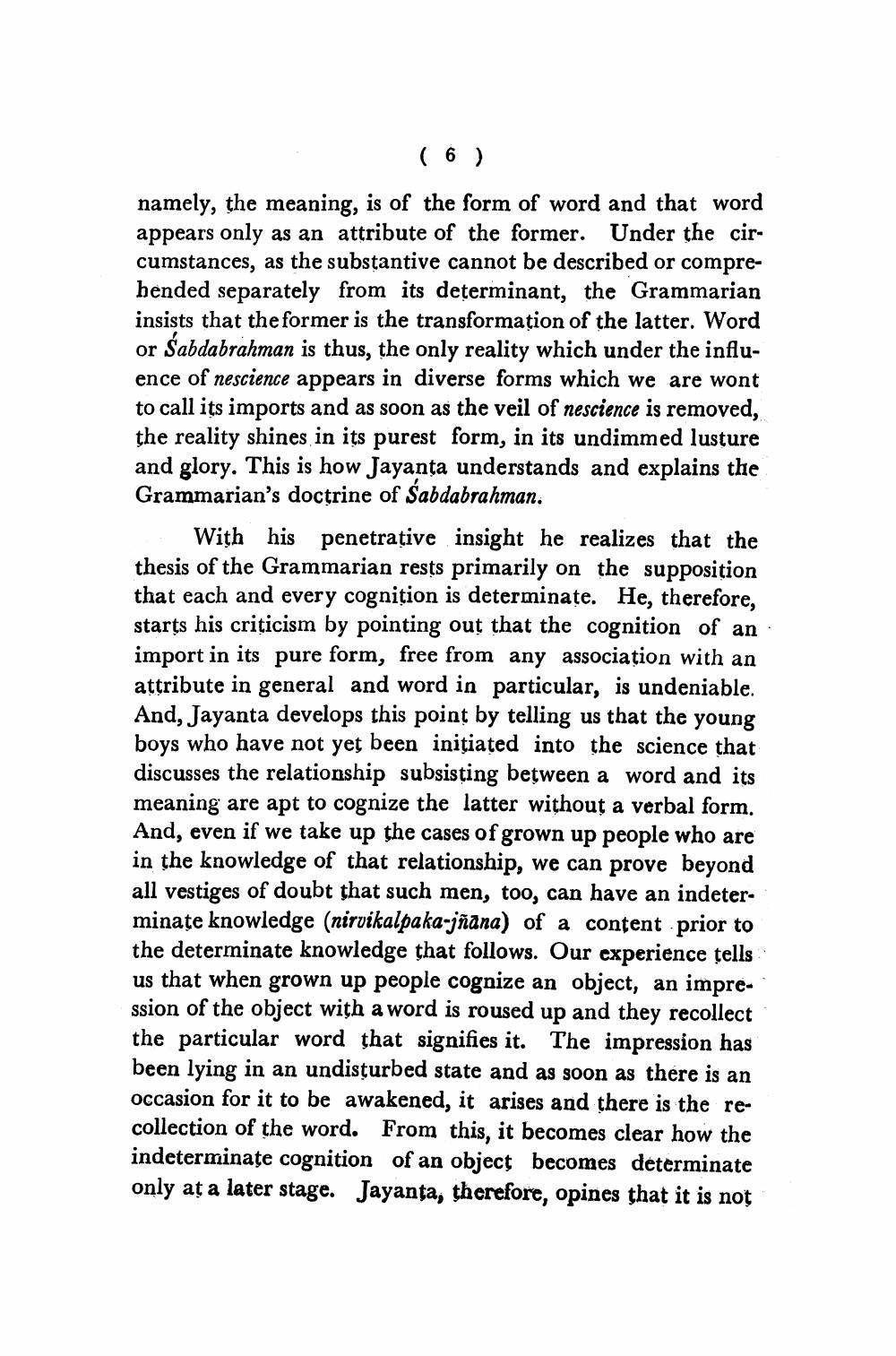________________
( 6 ) namely, the meaning, is of the form of word and that word appears only as an attribute of the former. Under the circumstances, as the substantive cannot be described or comprehended separately from its determinant, the Grammarian insists that the former is the transformation of the latter. Word or Sabdabrahman is thus, the only reality which under the influence of nescience appears in diverse forms which we are wont to call its imports and as soon as the veil of nescience is removed, the reality shines in its purest form, in its undimmed lusture and glory. This is how Jayanţa understands and explains the Grammarian's doctrine of Sabdabrahman.
With his penetrative insight he realizes that the thesis of the Grammarian rests primarily on the supposition that each and every cognition is determinate. He, therefore, starts his criticism by pointing out that the cognition of an import in its pure form, free from any association with an attribute in general and word in particular, is undeniable. And, Jayanta develops this point by telling us that the young boys who have not yet been initiated into the science that discusses the relationship subsisting between a word and its meaning are apt to cognize the latter without a verbal form. And, even if we take up the cases of grown up people who are in the knowledge of that relationship, we can prove beyond all vestiges of doubt that such men, too, can have an indeterminate knowledge (nirvikalpaka-jñāna) of a content prior to the determinate knowledge that follows. Our experience tells us that when grown up people cognize an object, an impression of the object with a word is roused up and they recollect the particular word that signifies it. The impression has been lying in an undisturbed state and as soon as there is an occasion for it to be awakened, it arises and there is the recollection of the word. From this, it becomes clear how the indeterminate cognition of an object becomes determinate only at a later stage. Jayanta, therefore, opines that it is not




